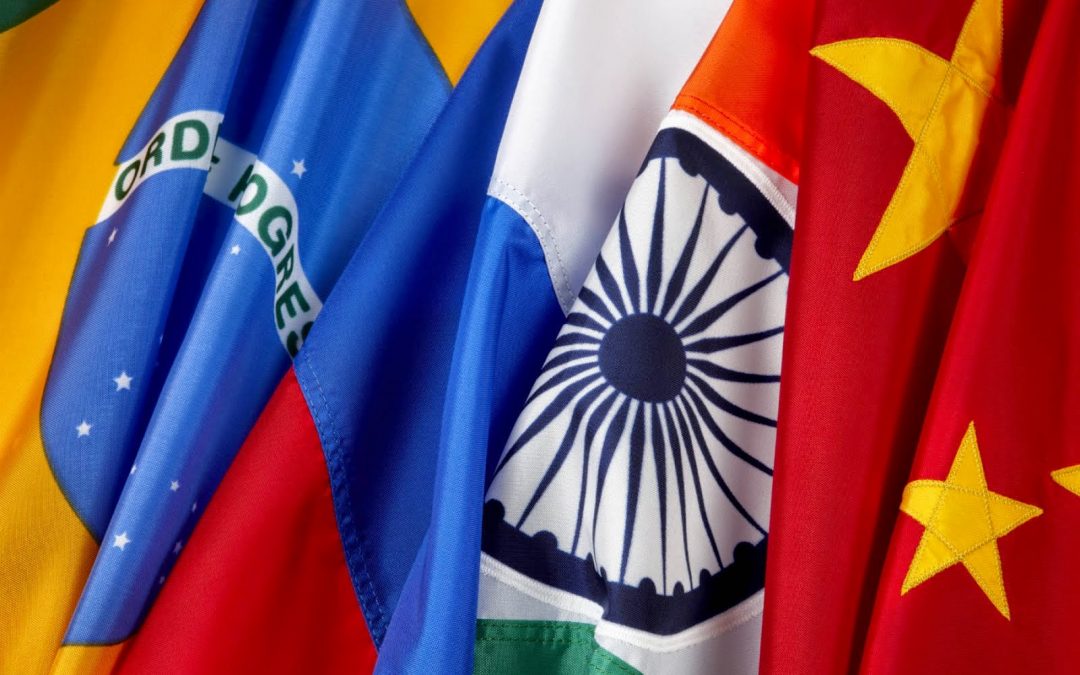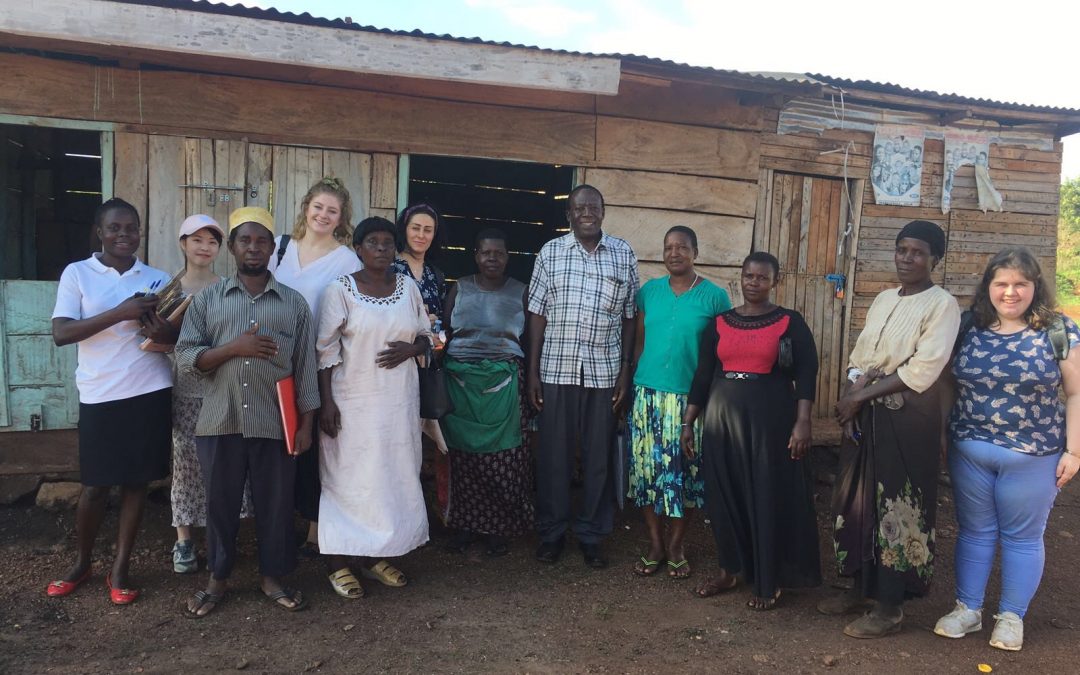
DSA2018: The political economy of green revolutions, agrarian transformations and inequality
by Tom Lavers, Global Development Institute
The Development Studies Association Annual Conference is being hosted by the Global Development Institute from 27-29th June. The conference will focus on inequalities. Ahead of the conference, we are running a series of blogs from attendees looking at the key issues and debates around inequalities.
A recent workshop at The University of Manchester brought together participants with expertise in Ethiopia, Ghana, Kenya, Mozambique and Tanzania to discuss recent efforts to promote green revolutions and the impacts these are having on agrarian transformation, industrialisation and patterns of inequality. Discussions highlighted the centrality of political economy to understanding processes of agrarian transformation, as well as the importance of broadening our analytical focus beyond agricultural productivity to the production linkages between agriculture, the rural non-farm economy and industry. A panel on Unequal legacies? The politics of the Green Revolution and South-South technology transfers in Africa at the Development Studies Association conference in Manchester from 27-29 June will pick up on some of these themes and many more.

Former Brazilian President Dilma Rousseff visits Global Development Institute
The Global Development Institute hosted a visit from the former Brazilian president Dilma Rousseff yesterday (Thursday 21 June) as part of a study tour she is undertaking across the UK.
Rousseff is a Brazilian economist and politician who served as the 36th President of Brazil, holding the position from 2011. She was the first woman to become the president of Brazil. read more…

DSA2018: More educated, less mobile? Diverging trends in income and educational mobility in Chile and Peru
The Development Studies Association Annual Conference is being hosted by the Global Development Institute from 27-29th June. The conference will focus on inequalities. Ahead of the conference, we are running a series of blogs from attendees looking at the key issues and debates around inequalities.
Anja Gaentzsch and Gabriela Zapata Román
The fact that parents pass on their advantages in life to their children is almost a given truth. But how strong is such transmission actually, and does it differ between societies and countries? The concept of inter-generational mobility measures the degree to which the socio-economic status of individuals – their profession, income or education – can be explained by parental background. A more mobile society is one where own achievements depend less on those of one’s parents. Research suggests that societies with a high level of income inequality also tend to display lower social mobility. Reasons for this include limited possibilities for low income groups to invest in the education of their children and social capital that is passed on between generations among others. Low social mobility not only contradicts our notion of social justice because it points towards unequal opportunities. It is also a concern of socioeconomic progress if it hampers children from disadvantaged backgrounds in unfolding their full potentials in later life. Measuring just how strong the link between parents and children is consists, however, a challenging task – both conceptually (which dimension captures welfare best?) and statistically. The available evidence suggests that countries and regions differ widely in their level of social mobility.
DSA2018: Does structural transformation lead to higher inequality?
The Development Studies Association Annual Conference is being hosted by the Global Development Institute from 27-29th June. The conference will focus on inequalities. Ahead of the conference, we are running a series of blogs from attendees looking at the key issues and debates around inequalities.
By Kunal Sen, Global Development Institute, The University of Manchester
Structural transformation – the movement of workers from low productivity to high productivity activities and sectors – is an essential feature of rapid and sustained growth. The speed at which structural transformation occurs differentiates successful countries from unsuccessful ones. At the same time, it is widely believed that structural transformation can lead to higher inequality, at least initially. As workers move from low earnings jobs in the subsistence agricultural sector to better paid jobs in the more productive manufacturing sector, inequality can increase. Therefore, rapid structural transformation may entail a trade-off between growth and inequality, which may be called the developer’s dilemma. While inequality may increase at the early stages of structural transformation, beyond a certain level of structural transformation, inequality will decrease, giving rise to the famous inverted U-shaped relationship between income and inequality – the so-called Kuznets curve.

Refugee Week reflections: The end of Europe as a community of values – not caused by Brexit but the journey of the Aquarius?
Tanja R. Müller, Reader in Development Studies, Global Development Institute
Remember 2015? Then, a perceived unprecedented number of refugees and migrants entered Europe, more than one million people according to available data, while almost 4000 drowned on their journeys. We saw long queues of people stranded at the borders of mainly Eastern European countries, pictures that for many evoked scenes of refugee movements after WWII.
But the year 2015 also saw a courageous German chancellor, Angela Merkel, deciding against many in her own political party to open German borders and do the morally right thing: let those stranded in, to be welcomed and processed in Germany. Yes, initially the German asylum system as well as many of its welfare institutions were somehow overwhelmed, but the slogan ‘we will manage’ and a wave of bottom up solidarity by German citizens, NGOs and the business sector seemed to vindicate that optimism, and localised solutions were mostly found for those in peril. And in fact, Germany has managed pretty well, even if right-wing propaganda suggests otherwise. read more…

DSA2018: Land, ethnic inequality and conflict in Ethiopia’s emerging new political order
The Development Studies Association Annual Conference is being hosted by the Global Development Institute from 27-29th June. The conference will focus on inequalities. Ahead of the conference, we are running a series of blogs from attendees looking at the key issues and debates around inequalities.
Tom Lavers, Lecturer in Politics and Development
The last few years have seen large-scale conflict and major population displacements across Ethiopia, along the Oromiya-Somali border, within the contested Guji-Gedeo area, Amhara displaced from Benishangul-Gumuz, and Amhara and Tigrayans displaced from Oromiya, amongst others. These conflicts have often taken place along ‘ethnic’ lines and build on historical tensions, inequalities and grievances. They have also clearly been driven by the ongoing reconfiguration of power relations within Ethiopian politics, with mass mobilisation and conflict often a tool or byproduct of national and regional elites attempting to position themselves within the emerging political order in Ethiopia. A recent open access paper published in African Affairs argues that such conflicts reflect the ambiguity and contestation that is hard-wired into Ethiopian laws and popular discourse regarding the rights—in particular the right to land—of ethnic minorities living outside their ‘home’ region within Ethiopia’s ethnic federal system.

DSA2018: Migration, Social Justice and Global Inequalities
The Development Studies Association Annual Conference is being hosted by the Global Development Institute from 27-29th June. The conference will focus on inequalities. Ahead of the conference, we are running a series of blogs from attendees looking at the key issues and debates around inequalities.
Tanja R. Müller, Reader in Development Studies, Global Development Institute
Where somebody is born determines their life chances much more profoundly than what strata of society they are born into.
In the 21st century, a century that has seen increasing concern about global inequalities, this sentence seems truer than ever. This raises important questions related to fairness and social justice. One can discuss social justice in relation to income and wealth, and in relation to capabilities and the freedom to do things. In short, social justice is intimately linked to what Arjun Appadurai calls the ‘capacity to aspire’, and how that capacity is fostered or hindered. read more…

Rising Powers Special: The BRICs Uncovered
This week BBC Hardtalk’s Stephen Sackur speaks to Global Development Institute academics and other leading thinkers.
The feature length documentary examining the global trends, recent research findings and future directions for the rising powers.
What can social scientists know from art and how?
This blog originally appeared on the Manchester Migration Lab website
Written by Cathy Wilcock based on group reflections
This blog is a reflection on a workshop held at the University of Manchester and hosted collaboratively by the UoM Politics Department and the Institute of Social Studies in Den Haag. The workshop, co-organised by myself – a postdoc at ISS – and Aoileann Ní Mhurchú – lecturer in International Politics at UoM, was primarily asking ‘What can social scientists know from art and how?’. The workshop aimed to start conversations between those who make art, and those who engage with art in their social science research. The ideas recorded here are comprised of verbal and written reflections of all those attending the workshop (4 artists and 6 academics). read more…

How attempts to empower women can affect household dynamics.
A reflection on women empowerment in slum upgrading projects
by Esther Ndacyayisenga
‘’In some families women are still oppressed and can’t come up. In others, women have managed to cooperate with their husbands and still reap the benefits of the federation. And for other families, it ended in breakup and family destruction’’ – Female-participant A, personal communication, March 27, 2018.
It is widely accepted that empowering poor urban communities and involving them in political and economic decision making has the potential to contribute to poverty reduction and improved household livelihoods (UNDP, 2016), especially when empowering women, who are widely thought to use monetary gains in a way that benefits the household (spending money on food, rather than booze and leisure). But what is the impact on household dynamics when more power is gained by the female household member? While focusing on economic empowerment, this blog discusses this issue, combining a reflection on the literature and the recent fieldwork experience in Jinja, Uganda, where the urban poor women in slums are the primary beneficiaries of Slum Dwellers International (SDI) development programmes.
